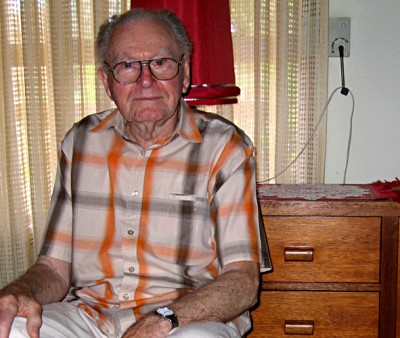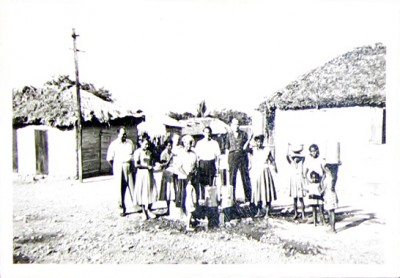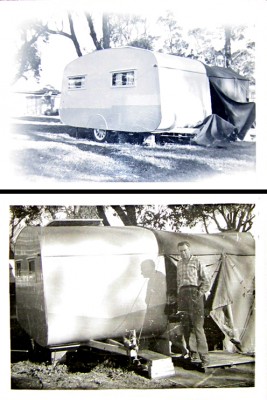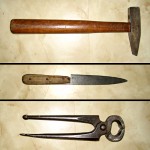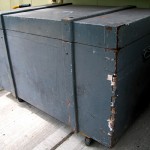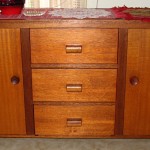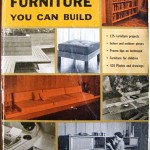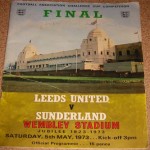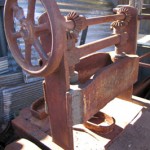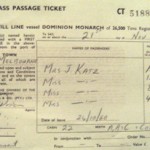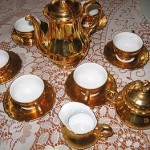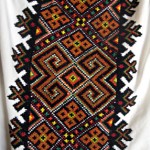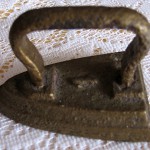Hungarian
Pancsova, Hungary (formerly Yugoslavia, now a suburb of Belgrade, Serbia)
Bremerhaven, Germany in June 1958
Melbourne in July 1958
Bonegilla for a few weeks and Fairy Meadow for a few months
Tent in Stuart Park, Wollongong, Illawarra
Scrapyard at BHP steelworks, Port Kembla, Illawarra
Phillips engineering department, Adelaide, South Australia. Instrument designer in Australian Iron and Steel electric shop, Steelhaven, Illawarra.
I was born on 30th March, 1920 in Pacsova which is [near] Belgrade. After the First World War that territory was given to Serbia and [became] Yugoslavia. [Before it] was Austro-Hungarian monarchy, the Habsburgs. It was one country. The peace treaty was a very touchy thing, you know. So I always say I was born in Hungary.
Then came the big trouble in the world, the big financial catastrophe in ’29 [and] ‘30s. My parents decided to go to Hungary because my mother was born in Budapest. I haven’t got a clue what they are talking about at school. My father couldn’t speak Hungarian. He spoke to me [in] German and my mother too because she come from an Austrian background. There was no food. There was no job for my father. We were struggling, you know.
I finished high school and then apprenticed instrument maker, called fine mechanic. Then in ’39 I got my certificate. Where I worked first, we made typewriting parts. After two years, I went to another firm who was the first Hungarian aircraft instrument factory.
When I was 21 I joined the Hungarian army and the air force, reconnaissance. And in ’42 they took us [to] Russia, to the Don River. At that time, I was a young man, war was adventure. But January 13th 1943 started the big Russian offensive; 50,000 Hungarians buried. That was terrible. There was minus 37 [degrees centigrade], so people froze to death. After Stalingrad which you see the picture there, we have to come back.
We go back home and served in Hungary. Americans had flattened the airport in Budapest. And we slowly, slowly went to the West and ended up in Austria.
When the Russians was near Hungary they were about 20 kilometres away [from] where I lived. In the night I visited my wife. People [were being told] to pack up and escape because the Russians are coming. From then on my wife was always with me.
[After], the end of the war, my wife told me she is pregnant. In the meantime my brother met a Russian girl from the cookhouse. We decided to go back to Hungary. We reached the place where the American and the Russian line was. The American said, “Sir, are you mad? They take you to Siberia”. My brother’s wife said, “That’s only propaganda”. The Russians give us the papers but the Americans didn’t let us go. So we decided we have to somehow go over the border. That was a very dangerous thing to do, of course.
We went across a very fast running river. On the other side was the American patrol. When he turned his back we can [go] one by one over. We worked for months for a farm. When the Russians come to occupy, we had to go. So we went to the demarcation line. The Russian patrol shouted, “Where you want to go?” We said, “To Hungary”. “How many woman you have?” I said, “Two”. And I [became] really concerned [as] we had heard terrible things. But my sister-in-law said, “No, don’t worry”.
They put us in a place where it was a pig stall. There was a lot of people there, wandering to the West from the East. “Yes, we want to go back to Budapest.” When he come to my sister-in-law, “You have to go back to Russia”, then they separated [her] from my brother.
We arrived in a place where the train was going to Vienna first. They said, “Don’t worry about the tickets, just go”. On the way these huge refugee camps full with German prisoners of war. We arrived in Vienna. There was a terrible thing. A girl just collapsed from hunger in front of us.
In Hungary we arrived, a young man was working. I said, “Where is the place we report?” He said, “Don’t go there because you will never come out”. We disappeared as soon as possible.
The next day the train was going to Budapest. It was full with Russian soldiers. They were drunk. I heard my wife crying out for help. So I pushed that fellow back, run out, opened the door and went down on the step. My wife was on the last step and that officer come out. In the meantime the train started to slow down. My brother and his friend was on the top of the wagon. It was really dangerous. When the driver stopped they will get us so I told my brother, “Jump down”. We all jumped and lucky it was a soft place. They were shouting [from the train].
We went to the first Hungarian house and they hide us. Next day we arrived in Budapest. All the lights was bombed down [but] I know that place like the back of my hand. In the meantime, my brother’s girlfriend escaped from the escort and she arrived two days before us [at my parents’ home].
I had to go to a committee. They ask, “When you was in Russia did you attempt to go over to the Russians?” I said, “It’s not my nature to go to the enemy”. One fellow said, “Comrade, that’s good enough”. There was nice people too. I went back to work but that factory did not exist anymore so I worked for three years as criminal investigator in the police force.
In ’56 when the Russians with thousands of tanks occupied Hungary, brutally break down everything, you know, many people die. And I just couldn’t stomach that because after ’45 there was similar thing, you know. After ’45 there was the so-called fascists, the nationalists. So the Communists hunted them down and I know cruel things happened. There was five, six [political] parties. But slowly the Communist Party, what they call ‘salami policy’, cut them all off. In the end it was only the Communist Party. And they did what they like. I resigned in ’48. I said that’s enough.
I was a bookkeeper in a stocking factory, organising the stockings [in a] Russian system. Then I decided what the hell am I doing in the stocking factory. And in ’56, I went out from Hungary.
Every second day I went to Budapest to go to Austrian Embassy for my wife’s cousin [who] want to go back to Vienna. I see all these things. The Russian tanks shooting the buildings. People lying dead. Candles everywhere. I was horrified what’s going on. I know there will be reprisals. They just hanged them up on a tree by their feet, these city police [when] they caught somebody. I saw with my own eye. But I can’t tell the Hungarian Revolution is a heroic thing. We lost thousands of people. They thought America would help. America didn’t do nothing.
My wife always said wherever you go, I go. There was no argument [from] the family. This time, thousands left Hungary. We went by train to Austrian-Hungarian border on 1st December. There was a place where the train had to go through Austria. They talked to the driver that he would slow down [to] jump down there. I said that’s not for us with [two] children. And I chose another [train].
The conductor a very nice young man. He said the Russians yesterday they here but didn’t see them on the [way] back. One place hundreds of people stepped down [but] he said that’s a bad place. These wagons were little four benches and a door. A lady with two little girls was sitting opposite us and we watched each other. That was a time when nobody trusted nobody.
Suddenly she said, “Listen, my husband is waiting, he will tell me where to go”. We arrived at a major city. Lucky there was no Russians. He told us to go ten metres behind and follow him. We went through the town. Hundreds of people went in one direction and he said they’re going the wrong way. “You stay here, I go home with my family. Then I come back and tell you what to do.” And he really come back and told us [where] to go.
Now we went and I was in the front, the two kids between [me] and the wife. We passed a farm and then we arrived to this clearing, with three crosses. He said when you reach that, from then on the border is not far away. But what he didn’t know, they cut the trees in one big heap and I think that was toilet paper, something white. And it was written, “STOP, MINE”.
So what to do. Go round where they put the mine and it was dark. I go very carefully, step on one log after another one and go over. I said to my wife, “If anything happens to me go back to the farm because you can’t help me”. Nothing happened so I come back and then one by one with my daughter, my son and my wife. And we arrived on the other side. It’s easy to say now but then it was really something.
Suddenly there was that famous border with the big wooden towers. We stopped the family there and it was a cold wind but beautiful for us, you know. Is there somebody or isn’t? I took a hard piece of thing, threw it and nothing happened. No movement, so nobody there.
And it happened to me, suddenly. I shouldn’t say it. So I ran back and fell on my knees and I just [took] a good breath. Suddenly that was over and a fantastic calmness come over me. We run over. There was a big building with a flag and I see German was written and red [and] white was the flag [for Austria].
We went back to Vienna. One fellow greeted [me] in German. He said, “You sleep here, in the morning the bus will take you”. And it was beautiful warm there, they give the children chocolate immediately. I write to my parents that we arrived.
Next day an elderly woman with big money bought [our bus] ticket, wished us good luck and we went to Vienna. We arrived to a big, happy [welcome from] my wife’s cousin. After two weeks in Austria I was working in instrument factory because I could speak to them. But I said we can’t live in relatives’ place forever, we have to move out.
They find a place for us and the last minute it was a matter of money [that we couldn’t stay there]. Every Hungarian thought when we go to West everything is beautiful and everything is good. Just find out it is not exactly like that.
Why we moved to Dominica? Because my wife was pregnant. The Catholic Church in Vienna helped with shoes for pregnant women, along with food. They paid for the travelling. They say after tomorrow we go. All these Hungarians went to Dominica so we joined them. We haven’t got the slightest idea where we going. The Dominican Republic was one of the most feared dictator[ships]. We didn’t know nothing. Hungary was heaven compared with that, you know. Then the International Red Cross from Geneva find out we were smuggled out from Austria. So they have to take us back.
We arrived in Holland, Vlissingen. In the same time was [a] big NATO exercise so we was handled like prisoners of war. That train was nonstop back to Austria. We lived in a camp. Imagine a big room and blankets divided them. The children was crying in the night.
’57 we was in Domenica. ’58 we went to Australia. In ’57 I bought these tools in Austria. [They were] in every household in Hungary. Suddenly the Americans came, round up everybody [to register]. From there they took us to Salzburg, [in transit to Australia]. In the high school in Hungary, learned geography. The drawing of Australia, all the states and the sheep. So when we arrived in Bonegilla [migrant accommodation], “Gee, that’s Australia, you know”.
On the way to Australia it was very nice. From Bremerhaven, oh it was beautiful. But in Fremantle the sky got black and big storm. We arrived in Melbourne in June ’58. I was, “Gee, pine tree, the branches go up, not down”. Then in the night they put you in a train and they took us to Albury-Wodonga. They said everybody out and there was a big bonfire and a few buses.
In Bonegilla, we arrived in the night. They give us a key, a number and we went there and slept. In the morning we wake up. I looked out, flat everything, only the skyline. See nobody told us, you know, anything. Slowly, slowly we get used to it. The leader of the camp said, “Don’t you feel good here? Food, everything, relax.” I not go for relaxing, we want to go.
They give us mutton and when we smell, that that was the end of it. And we eat only that. They didn’t know about us. We didn’t know nothing about them. They just let you go. Free, go. Look after yourself.
There was a fellow who wanted to learn English. There was Scotsman and he teached us in his Scottish way. Many “rrr”, you know. Anyway I did my best!
After a couple of days there was big trouble because there was a toilet – one plank and a big hole – and one boy fell in. And then we were little uprising. The Germans turned over a police car. About two weeks later they say who wants steelwork [to] line up, so we went to Sydney. Then they said you can’t take the family with you, they have to go to Villawood. The family was separated.
They took us to the [Port Kembla] steelworks. If we like the place and they like us, then bring the family. And we would be together. We liked everything. We were in Fairy Meadow [migrant hostel] now.
The furnace, that’s where I worked in three shifts. I hurt myself [many] times. It was a dangerous place. After a while when I picked up a bit of English. There was a very nice foreman in the electric shop. I [explained] many time I am an instrument maker. They couldn’t believe that dirty rough outfit could do fine work. The superintendant said, “Listen, I can only take you when the union accept you”. I was accepted in the steelworks in the instrument testing department, brand new, painted, smells good. I went out in the steelworks preparing high tension switch gear and I was not an electrician. That was a shock.
The family was [at Fairy Meadow] for a while. There was a big fence and the beach was outside. Stuart Park is just there with caravans. And I heard German talk. [They] said, “George, you go down to the disposals, buy a tent, live and your wife can cook what she likes”. In Fairy Meadow you have to go in the igloo (Nissen hut) with plenty people eating and a mess room. I didn’t like it. I want to go out on my own and that was the solution. It was beautiful.
I bought a 14 feet square tent. Made a floor, a temporary wardrobe and a bed. There was a Hungarian fellow in Fairy Meadow who supplied us a good mattress and blankets. Then I started to build a caravan. But every three months, that was a rule from the council, you had to move to another place. Every three months.
[Migrants] were treated very well, you know. The English was called ‘Pommies’, we was ‘Wogs’. The Australians in the steelworks, they was very nice. They give us a voucher to order sausage, we read it in Hungarian. Oh, don’t mention the garlic – Greeks, Lebanese, Maltese, Hungarian, German and that was pretty rough, you know. When the food didn’t arrive in time, the foreman said [to] do nothing ‘til the food comes [just in case] somebody collapse from hunger.
In early ’63 we went Adelaide. When we come to Australia on the ship they said, “You, George, have to go to Adelaide because there is a fine industry”. The family lived in Warrawong [near Port Kembla] in a very nice lady’s house. I went to Adelaide to have a look at the situation. Arrived there when the Queen was visiting.
The employment [agency in Adelaide] said if you don’t like [the job], you come back. They send me to a place where they repaired prams! Then one day on the bus I discovered the conductor is a German, and I asked him. Phillips [had a] vacancy. So I ended up in the Phillips engine work.
We made a house there. I tried to sell this land [in the Illawarra] because we brought that land much bigger and very nice. So I came back to personally try to sell it. In the meantime my superintendant wrote me a letter to come back so I immediately got back my job. Then I tried to sell this land and I couldn’t. They would give £800 and it cost me £950.
The superintendant ask me, “Why you want to go back to Adelaide?” “I want to have a house with my family.” He said, “If you can have a house here would you stay?” “Yes.” [He] give me a letter, send me to the building society in Wollongong and I got £3,500 loan to build a house here. So family come back, I build a house and then I make everything.
While the house was built we rented in Wollongong. My workshop was underneath the house. I still have that magazine, American, which they show different furniture, people who build them. And I chose the kitchen table and the bench. Exactly the same.
We was very, very happy when we moved in this house [in 1965] because after that long years of struggling, you know, and places, going, coming, we are in own.
Ten years ago [I joined] the Hungarian Club. They run a library, Hungarian books. [In the past] we went there but we didn’t join because my wife didn’t like social life. She like to be home.
In ’82 the steelworks just collapsed. Unbelievable. From 22,000 people they melted down to probably 4,000. They sold locomotives and I was on unemployment benefit. They said if you want to learn something, you can chose that and that. I chose English language.
A little bit less than 25 years [at steelworks]. [Then I retired.] My hobbies? My hobby was of course working with wood.
A lot changed since all this migrant come to Australia. There are 21 million now. When we come, it was eight or ten. They bought their skill and changed things. Wollongong was a little, grey fishing village with old houses. Stuart Park was a little wilderness, big trees and under this canopy I build a caravan.
Very good. I think there is no better place in the world.
Four times [back to Hungary]. Oh it feel very good, emotionally. My children, well my young son, he spoke only Hungarian when he was a little boy. Now he understands [Hungarian] only a little bit. My daughter speaks Hungarian.
But for me, well, it’s different. Hard to say. I come from a German, Austrian, Czech background [but] inside, I am always a Hungarian. It is a miracle, somebody who live in Hungary from childhood is completely Hungarian. There is some magic in it.
Interviewed by:
Andrea Fernandes, NSW Migration Heritage Centre
20 November 2008
With assistance from the Illawarra Migration Heritage Project and Eva Castle


